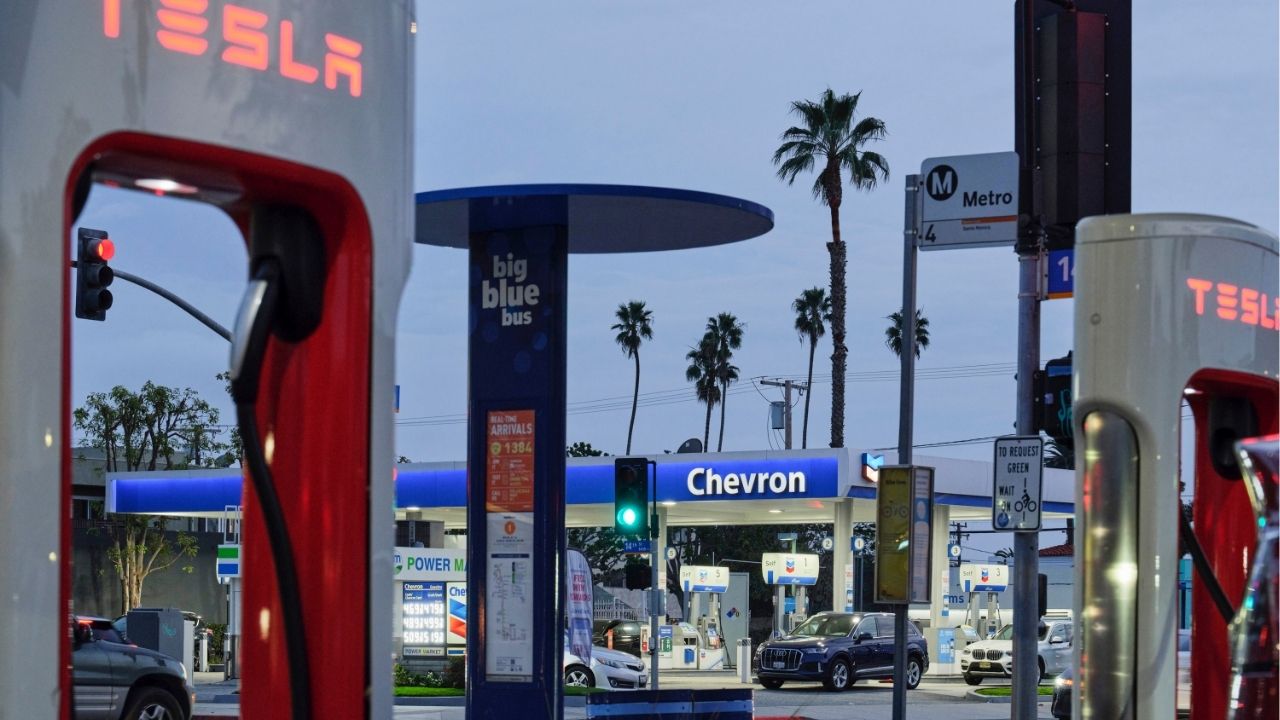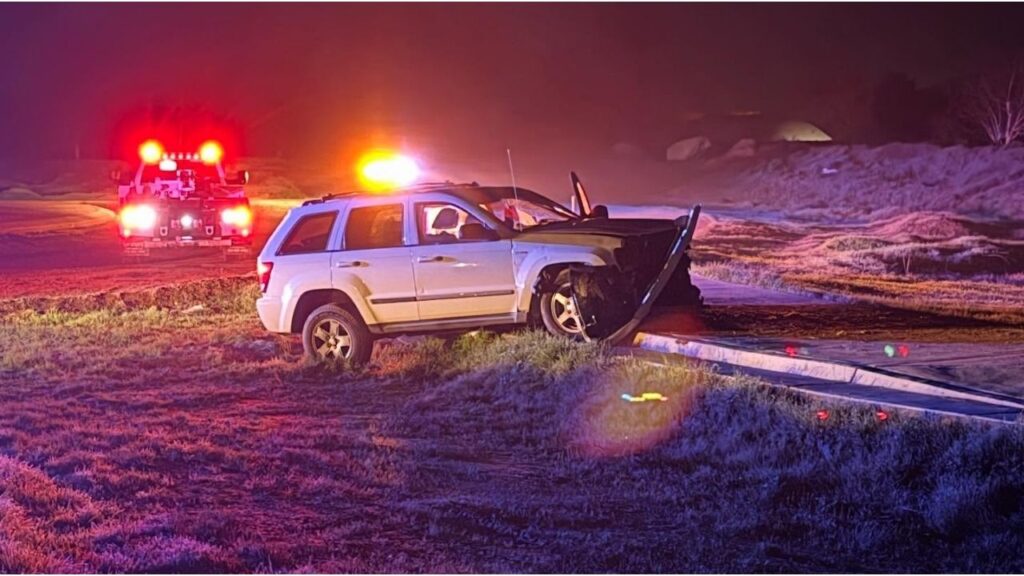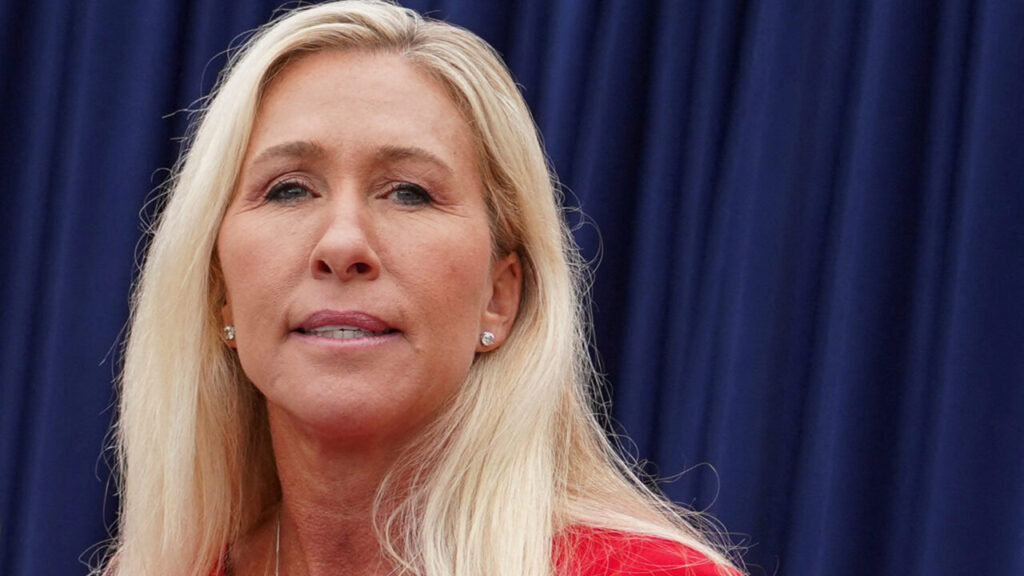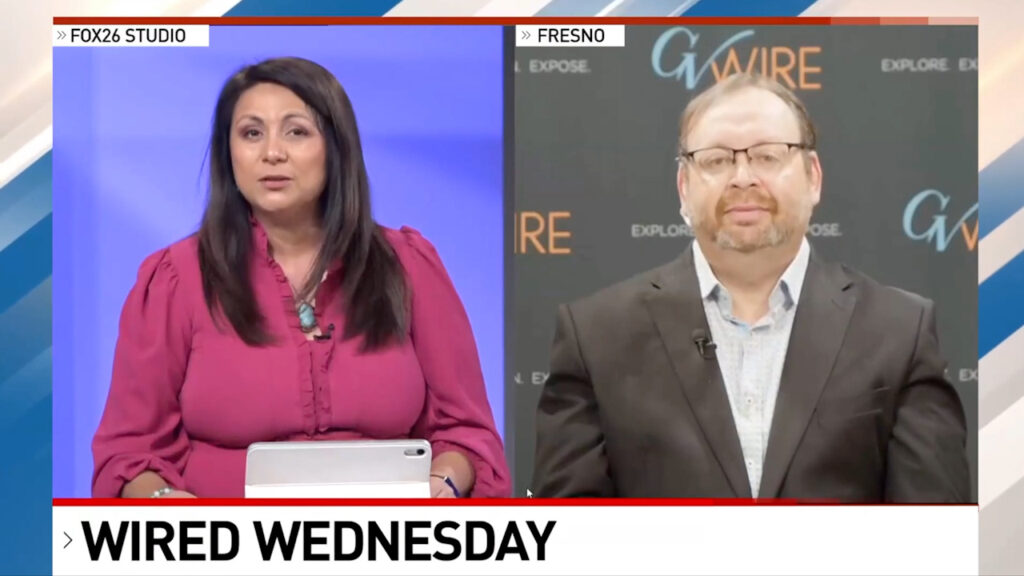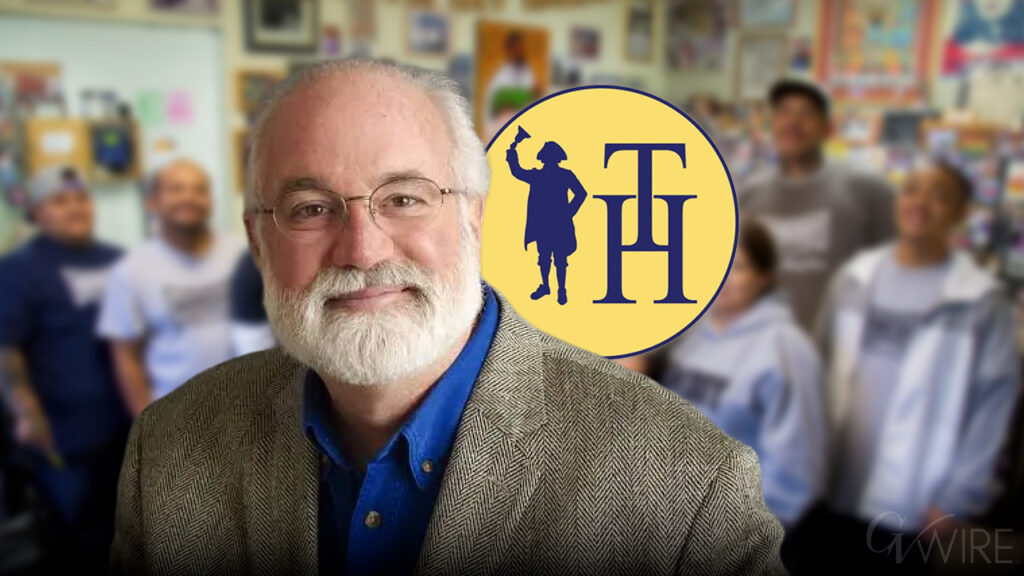A Chevron gas station is seen across the street from a Tesla Supercharger, an electric vehicle charging station in Santa Monica, Calif. on Jan. 24, 2024. California leaders have envisioned a time when most drivers have electric cars, but a vast majority of residents still rely on gas-powered vehicles. (Philip Cheung/The New York Times)

- California Democrats are rolling back key environmental protections, including CEQA and refinery closures, to address the state’s soaring living costs.
- Newsom and lawmakers argue easing oil regulations will prevent gas price spikes, despite backlash from climate activists urging faster fossil fuel phaseout.
- The shift signals Democrats prioritizing pocketbook issues after Trump’s 2024 win, potentially offering lessons for national strategy despite environmentalist anger.
Share
|
Getting your Trinity Audio player ready...
|
California has long prided itself as an environmental trailblazer. It was the first state to set its own vehicle emission rules and the first to outlaw plastic shopping bags.
In 2020, Gov. Gavin Newsom, a Democrat, went so far as to seek a ban on the sale of new gas-powered vehicles by 2035. Standing in front of several electric cars, he warned automakers against being on “the wrong side of history.”
So it surprised environmentalists this year when Newsom and Democratic lawmakers began backtracking on signature green initiatives. They rebuked the state’s coastal preservation commission for regulatory overreach and rolled back the landmark California Environmental Quality Act, better known as CEQA, to address the state’s severe housing shortage.
Then, to environmentalists, came the unthinkable: pushing legislation to keep oil refineries open and make oil drilling easier in California.
“It’s a complete 180,” said Hollin Kretzmann, a lawyer at the Climate Law Institute, part of the nonprofit Center for Biological Diversity that focuses on protecting endangered species. “It’s become more urgent than ever to rid ourselves of fossil fuels, so it’s really inexplicable why our policymakers in Sacramento are moving the exact opposite way we should be going.”
Even in liberal California, Democrats say they have been stung by their party’s tailspin after last year’s losses in national elections. They understand that voters are frustrated with the high cost of living in California, and they are trying to show that they are doing something about it.
If they gain traction by tilting toward pocketbook issues, even at the expense of long-held environmental orthodoxy, it could provide lessons to Democrats nationally even if it angers activists locally.
Gas prices have long been higher in California than elsewhere — they are about 45% higher than the national average at the moment — but lawmakers are worried that costs could skyrocket if they don’t help the oil industry immediately. And the transition to electric vehicles has not advanced to a point where drivers — or politicians — can ignore prices at the pump.
“Climate leadership is not $10-a-gallon gas — we need California to be an inspiration and not a cautionary tale,” said Assembly member Cottie Petrie-Norris, a Democrat from Orange County who chairs the energy committee in the state Assembly. “For decades, there were policymakers and advocates who somehow thought we could set really high goals and wave a magic wand and deliver on them.”
“We are all out of magic wands,” she said.
The modern environmental movement was born in California when an oil spill in 1969 off the coast of Santa Barbara captured the attention of Americans who were increasingly concerned about how development was harming the natural world around them. The disaster led to the first Earth Day in 1970, when coast-to-coast demonstrations drew a stunning 20 million Americans — one-tenth of the country’s population at the time — and precipitated action at the state and federal levels to safeguard the environment.
Soon after, California enacted the California Environmental Quality Act, which required reviews of new development to address potential environmental impacts. In 1972, voters approved the creation of the California Coastal Commission, a state agency in charge of protecting the seashore and ensuring public beach access. In the years since, California has approved a number of standards for water and air quality, and the state instituted the nation’s first cap-and-trade-programs.
Democrats have long asserted that they can help American consumers and improve the environment all at once. They have promoted the idea that workers in fossil fuel industries can transition to jobs in clean energy. That drivers will ultimately save money by charging their vehicles instead of pumping gas. That homes will become more efficient and need less energy for heating and cooling.
Newsom, in a State of the State letter he sent to lawmakers last week, still made that case. “In California,” he wrote, “economic growth and environmental protection go hand in hand.”
But for many Democratic state legislators, Donald Trump’s presidential victory last year was something of a reckoning. After that loss — in which Republicans made gains in California — lawmakers said they had begun to consider whether their priorities were truly in line with voters’ daily concerns, like paying for rent or groceries.
At the end of the legislative session Saturday, state lawmakers passed a proposal to allow more oil drilling in Kern County, a petroleum-rich region in the Central Valley. The legislation could allow up to 2,000 new oil and gas wells to be drilled in the county per year for 10 years.
Environmentalists believed that the catastrophic Los Angeles fires in January, the most expensive climate disaster in U.S. history, should have been a catalyst to pass climate change bills, not roll back regulations.
“I fear that the things that Newsom is doing and the legislators are doing are rolling us back,” said Kathryn Phillips, a former director of Sierra Club California who worked on many of the state environmental initiatives in place today. “They aren’t pressing to move harder and faster on shifting us out of a dependence on fossil fuels for vehicles and so on, and instead are clearing the way for some things to go back to the way they were.”
Polls show that voters still see environmental issues as a priority. But as their personal budgets are stretched ever more thin, Californians want help reducing the costs of housing, gas and electricity.
Dan Schnur, a political science lecturer at the University of California, Berkeley, said that in tough economic times, it is difficult for voters to think about more abstract priorities that require collective action ahead of their pocketbooks. “A lot of voters care about environmental protection and climate change, but care about their daily cost of living even more,” he said.
—
This article originally appeared in The New York Times.
By Soumya Karlamangla/Philip Cheung
c. 2025 The New York Times Company


